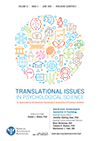Can I tell you a secret?” The next time someone asks you that question, you may not want to say yes. Being confided in is a double-edged sword, says social psychologist Michael Slepian, PhD, an associate professor of leadership and ethics at Columbia Business School who studies the psychology of secrets.
“The bad news is that when people share their secrets with us, we feel like we have to guard them. The more people are preoccupied by that secret, or feel they have to hide it on behalf of the confidant, the more burdensome it is,” he says.
On the bright side, those shared confidences can be a boon to bonding, he’s found (Journal of Experimental Social Psychology, Vol. 78, 2018). “When people confide in us, we take it as an act of intimacy that can bring us closer,” he adds.
Secrets are a universal human phenomenon. Almost everyone has something to hide (though, of course, not all secrets are of the deep, dark variety). Yet until recently, psychological scientists hadn’t spent much time exploring how keeping secrets affects us. Slepian got his start studying secrets indirectly. He had been researching metaphor—looking at the ways people use language about physical experiences to describe abstract concepts—and he became intrigued by the metaphor of being “weighed down” by a secret. “I wondered if it was just a linguistic thing that people do, or if it reflected something deeper,” he says.
Digging into the secrecy literature, he found that most existing research focused on the effort involved in keeping a secret. Typical studies looked at interactions between two people while one of them tried to hide something from the other. But he couldn’t find much research on how people thought about secrets outside those conversations.
“For decades, secrecy research focused on the effects of concealment. But I couldn’t find any studies that systematically looked at what secrets people keep, how they keep them or how they experience secrets on a day-to-day basis,” he says. “So, we started at the beginning, with the most basic questions we could ask.”
Secrecy basics
Slepian and his colleagues started with a series of studies to sketch the basic outlines of secrecy, focusing first on secrets people keep from others (versus secrets that others confide in them) (Journal of Personality and Social Psychology, Vol. 113, No. 1, 2017). They took a broad view, defining secrecy not just as the moment of actively withholding information, but also having the intention to keep something secret from another person—even when that other person isn’t physically present. They identified 38 common categories of secrets that people keep about themselves, ranging from infidelity and illegal behavior to pregnancy and planned surprises for others. And those categories held up across study populations, which included participants drawn from Amazon’s Mechanical Turk and random picnickers recruited from New York City’s Central Park.
“We all keep the same kinds of secrets,” Slepian says. “About 97% of people have a secret in at least one of those categories, and the average person is currently keeping secrets in 13 of those categories.”
It’s hard for people to get those secrets off their minds. The same paper showed that people’s minds wander to their secrets far more often than they actively try to conceal their secrets from others. And although the frequency of concealment didn’t seem to have much effect on well-being, the more people’s minds wandered to their secrets, the worse off they were.
“It’s not how much you hide a secret that’s harmful, but how often you find yourself thinking about it,” Slepian says.
Some secrets are harder to put out of our minds than others. Slepian and his colleagues James Kirby, PhD, at the University of Queensland, and Elise Kalokerinos, PhD, now at the University of Melbourne, explored the negative emotions that often surround secrecy. They surveyed a diverse sample of 1,000 people on Mechanical Turk about more than 6,000 of their secrets and found that people dwelled more on secrets that made them feel ashamed than on those that made them feel guilty (Emotion, Vol. 20, No. 2, 2020). “Shame, but not guilt, is associated with ruminating on secrets,” Slepian says.
While shame and guilt are both negative emotions, they have important differences, he says. “Guilt is more adaptive. When you feel guilty, you can make amends or decide to do something differently next time,” he explains. “Shame is more about feeling like a bad person. It can make you feel helpless or powerless.” And those feelings of helplessness can lead a person to revisit their shameful secrets over and over.
In an extension of that work, he’s beginning to explore how to reduce shame around secrets. “We know the secrets people feel ashamed of hurt them the most. So how can we reduce the shame? Talking to another person might make all the difference,” he says.
The burden of secrecy
Having a secret can feel exhausting. In fact, it is exhausting. With Nir Halevy, PhD, at the Stanford Graduate School of Business, and Adam Galinsky, PhD, also at Columbia Business School, Slepian performed a series of experiments asking participants to recall either personal information they intended to keep secret or personal information they hadn’t shared but would be willing to discuss if it came up in conversation. The researchers found that people felt both more fatigued and more alone when they recalled their secrets than when they recalled the undisclosed information. One explanation, Slepian says, is that thinking about a secret can create a motivational conflict in which a person’s need to connect with others directly clashes with their desire to keep their secret to themselves (Personality and Social Psychology Bulletin, Vol. 45, No. 7, 2019). “We want to confide and get the secret off our chests, but we also want to protect ourselves and our relationships. That conflict is what wears us down,” he says.
There’s evidence, too, that divulging the secret can lighten the load. With Edy Moulton-Tetlock, a doctoral student in management studying organizational behavior, Slepian looked at the ways confiding a secret might influence well-being. They asked more than 800 online participants to describe their personal secrets, using Slepian’s list of 38 common categories of secrets as their guide. The participants described more than 10,000 secrets, including some they had spilled (“confided secrets”) and some they had kept confidential (“total secrets”). Slepian and Moulton-Tetlock found that confiding a secret predicted improved well-being, both because the participant received social support and because the act of revealing the secret seemed to minimize the amount of time the person spent thinking about it (Social Psychological and Personality Science, Vol. 10, No. 4, 2019).
“You confide, you receive social support from the confidant, you feel more capable of dealing with the secret and you ruminate less about it. It’s the lowering of rumination that makes you feel better,” Moulton-Tetlock says.
Not everyone is inclined to confide in others. Slepian and postdoctoral researcher Sarah Ward, PhD, are studying how personality differences might make people more or less likely to share secrets. “Sharing secrets is often a way to build trust or closeness. Knowing which people tend to share can help to identify who is likely to build close relationships, and who might be missing opportunities to foster closeness and trust,” Ward says.
Preliminary results from the research hint that people who score high on neuroticism, for instance, are less likely to confess to immoral activities they’ve engaged in. Ward and Slepian are also finding that particularly polite people may be more reticent to divulge the skeletons in their closets. By holding on to secrets, Ward says, such people “might be missing out on an opportunity to get comfort or relief from other people, which could alleviate their negative emotions.”
Slepian and his collaborators are exploring other aspects of secrecy as well. In a project with doctoral student Katherine Sun, he’s studying how people respond when someone brings up a topic they’d rather keep under wraps. Sun and Slepian found that people tend to avoid such topics for one of two major reasons: for privacy’s sake or to avoid conflict (Organizational Behavior and Human Decision Processes, Vol. 160, 2020).
What’s more, people seem to respond differently in each case. When people avoid talking about a topic because of privacy, such as family or financial issues, they tend to feel more anxious and stay quiet, Sun says. “On the other hand, some people don’t want to talk about something because it could create a conflict—for example, talking about politics with someone of a different ideology,” she explains. “In that case, they’re more likely to feel angry and to leave the conversation.”
Practical applications
Slepian’s lab is housed in the management division of Columbia University’s business school, where researchers in fields such as psychology, sociology, economics and political science explore various ways that individual, interpersonal and institutional forces drive behavior.
Being situated in a business school has practical perks: For one, the school fully funds his lab, so he doesn’t have to seek outside grants. He advises one primary graduate student, but he also co-advises graduate students and mentors postdoctoral fellows across the division. The multidisciplinary business perspective also means that Slepian keeps one eye turned toward the practical applications of his research.
Some of his ongoing research, for example, is exploring the effects of having to keep secrets on behalf of an employer. Early results suggest that work secrets, like personal secrets, can be both good and bad. On the one hand, it can feel good to be entrusted with important information about one’s company. On the other, keeping that secret can feel like a burden.
Slepian’s next goals include using his research to design possible interventions to help people unburden themselves to improve their well-being.
“We’re thinking about what kinds of interventions might help people confide in others—or otherwise give people the beneficial things that they might get from talking to others,” he says. “I want to take these things we’ve learned and turn them around to help people cope with their secrets.”






